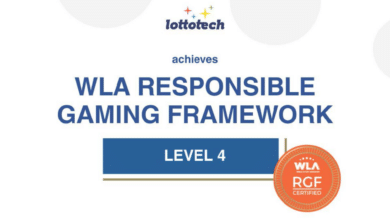
On May 4, the Kenya National Treasury suggested increased taxes on a number of items, including cryptocurrencies, income tax, VAT, paid partnerships, artificial nails, and beards among other items.taxes cryptocurrencies digital assets
Treasury Cabinet Secretary Njuguna Ndung’u proposed the following amendments to Section 5 of the Income Tax Act. This is according to the Finance Bill 2023, seen by igamingafrika.com.
1. Digital Currencies
Digital assets are regarded as property by the Treasury, and any profits made from their sale, exchange, or disposal are subject to capital gains tax (CGT). They are subject to taxation under the Income Tax Act.
In Kenya, the CGT rate is presently 5% for gains over Ksh 500,000. This means that if a person makes Ksh600,000 through the sale of digital assets, they will be forced to pay Ksh5,000 in CGT, which is 5% of the amount over Ksh500,000.
It’s crucial to remember that people are required to maintain accurate records of their digital asset transactions, including the date of acquisition, purchase price, and earnings from sales or other dispositions of the assets. The CGT obligation should be determined using this information.
Furthermore, if a person mines or trades digital assets, the income derived from these activities is taxable. Depending on the income class, the income tax rate for individuals in Kenya ranges from 10% to 30%.
Digital content monetization will be subject to a 15% withholding tax, while marketing services will be subject to a 5% withholding tax.
2. Tax on per diem
As part of the taxes that must be submitted, Finance Bill 2023 will compel employers to deduct and remit income tax on cash allowances paid to their employees.
One such instance is the amount paid to an employee when outside their usual place of work but on official duty, also known as per diem. In this case, the first KSh2,000 paid to an employee per day is not taxable. It is treated as reimbursement of expenses.
the government explained in the 2021 tax plan.
Cash allowances are given to employees in addition to their base wage in the form of bonuses, commissions, or additional payments for things like transportation, housing, and hardship per diems.
Cash allowances are taxed differently depending on the type of per diem. For instance, housing and hardship are fully taxable, whereas transportation allowances are taxable up to a predetermined government cap.
Any exempt amount is subtracted from the total amount of the cash allowance to get the taxable amount. The Kenya Revenue Authority (KRA) requires employers to withhold the appropriate amount of tax from cash allowances at the time of payment and remit it on a monthly basis.
The Pay-As-You-Earn (PAYE) system historically exempted cash benefits given to employees from income tax. taxes cryptocurrencies digital assets
3. Income Tax
This is a tax on the income earned by individuals, partnerships, companies, and trusts. The tax rates for individuals range from 10 to 35 percent depending on the income bracket, according to the Finance Bill 2023.
To this end, the National Treasury proposed an amendment to the Employment Act of 2007 to provide a 35 percent income tax on all monthly salaries above Ksh500,000.
It follows that an individual earning Ksh 500,000 per month will be required to pay the government a cool Ksh 175,000 in income tax, which is to say, less other taxes.
Njuguna also suggested a 3% basic salary deduction for the National Housing Development Fund, with employers contributing an additional 3%.
Treasury suggested that people who are ineligible for the program for affordable housing must accumulate their savings over a period of seven years, after which they will receive their first deductions or at retirement, whichever comes first.
4. Value-Added Tax (VAT)
This is a tax on the value added to goods and services at each stage of production and distribution . In Kenya, the current VAT rate is 16%.
Where a bona fide owner of taxable supplies, who has deducted input tax under subsection (1), is compensated for the loss of the taxable supplies, the compensation shall be treated as a taxable supply, and if the compensation includes value-added tax, the compensation shall be declared, and the value-added tax thereon remitted to the Commissioner.
If the compensation does not include value-added tax, the compensation shall be declared and subjected to value-added tax and the tax remitted to the Commissioner.
5. Excise Duty
This is a tax that is placed on some things, such as beer, cigarettes, and petroleum products. Depending on the product type, the excise duty rate varies.
Read Also: Saving on Every Bet Placed in gambling legislation reform proposal
In this regard, the government would levy a 5% excise duty on wigs, human hair, fake beards, eyebrows, and eyelashes.
6. Customs and Excise Taxes
These are import- and export-related levies. Customs and excise duty rates differ based on the kind of commodities.
7. Property Taxes
The taxes are levied on the market value of assets like land and buildings. The location and value of the property affect the property tax rate.
The property tax rate in Kenya ranges from 0.1% to 0.4% of the market value of the property depending on the location and usage of the property.
Subject to this Schedule, income in respect of which tax is chargeable under section 3(2)(f) is the whole of the gains which accrued to a company, an individual or partnership on or after the 1st January, 2015, on the transfer of property situated in Kenya, whether or not the property was acquired before 1st January, 2015.
Taxation gains derived from the alienation of shares or comparable interests, including interests in a partnership or trust, if, at any time during the three hundred and sixty-five days preceding the alienation, the shares or comparable interests derived more than twenty per cent of their value directly or indirectly from immovable property situated in Kenya, or gains, other than those to which subparagraph (a) applies, derived from the alienation of shares of a company resident in Kenya if the alienator, at any time during the three hundred and sixty-five days preceding such alienation, held directly or indirectly at least twenty per cent of the capital of that company,” read part of the Finance Bill 2023. taxes cryptocurrencies partnerships digital assets
More
- Daily payment of excise duty by betting companies, now codified.
- If a taxpayer disputes a tax assessment by the KRA and appeals to the Tax Appeals Tribunal, they need to deposit 25% of the disputed tax
- LPG and fertilizer inputs are now VAT exempt
- Marketing services are now subject to a 5% withholding tax while digital content monetization is subject to a 15% withholding tax
- All “paid partnerships” on IG and brand ambassador roles are to be taxed taxes cryptocurrencies digital assets
editor@igamingafrika.com
Subscribe to our channel on Telegram here for timely live updates on all happenings in the iGaming space in Africa. You may also join our group on Telegram here and grow your networks by interacting with all players in the iGaming sector in Africa taxes cryptocurrencies digital assets























